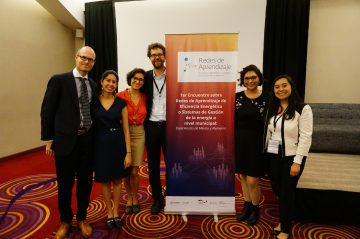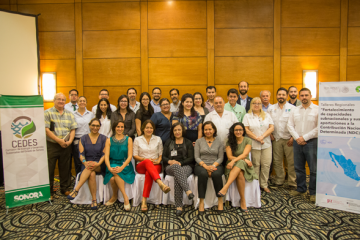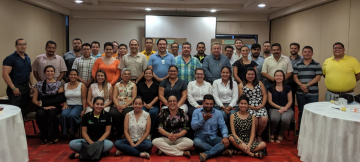The global program Vertically Integrated Climate Policies (VICLIM) is about to completing its activities after developing for three years actions focused mainly on strengthening capacities and policies to promote the integration of states and municipalities in achieving national climate change mitigation objectives.

The global VICLIM project has been implemented since 2017 in four countries: Georgia, Costa Rica, South Africa, Indonesia and Mexico, where the activities started. In Mexico, the four strategic lines of work of the program were developed and the most emblematic results are exemplified below.
The first refers to Institutional strengthening for vertical climate integration. Within this line, in order to consolidate the state capacities in the field of climate change, a series of regional workshops were carried out with the support of the bilateral program Mexican-German Climate Change Alliance between 2017 and 2018. The focus of this effort was identifying contributions from the subnational level to the National Determined Contribution (NDC). Under this strategy, VICLIM is working in coordination with SEMARNAT in identifying success stories on climate finance at the local level that can serve as referents of detonating elements in the subject for other municipalities.

Within the second line of work about Instruments and Mechanisms for vertical climate integration, the Ministry of Environment and Territorial Development of the State of Jalisco (SEMADET) was supported by the program to develop a Municipal Climate Change Programs (MCCP) Elaboration and Updating Guide. This guide has been piloted in Puerto Vallarta for the development of its MCCP in collaboration with the Ecosystem-based adaptation to climate change in cooperation with the private sector (ADAPTUR) program. With this, climate change mainstreaming at local level has been promoted, as well as the vertically integrated alignment of the municipality’s policy.
The third line of VICLIM corresponds to the Knowledge transfer of the National Climate Initiative (NKI). Within this line, one of the activities was to integrate Germany’s experience in the development and implementation of Energy Efficiency Learning Networks or Energy Management Systems at the municipal level. The program provided a document of strategic orientations on the subject in conjunction with the Energy Transition Support Program in Mexico (TREM).
The fourth line of action contemplated the Knowledge exchange. Under this premise, one of the activities of VICLIM was the exchange of experiences on local climate change actions through the study trip of a Costa Rica delegation organized by VICLIM Mexico and said country. Within this event, sessions were held between peers from municipalities in Costa Rica, Naucalpan and the state of Jalisco, as well as with the secretariats of the environment in both countries.

Within the lessons learned from VICLIM Mexico, cooperation is identified as a fundamental element for the scope of the results of the different activities. Global projects, despite some having reduced budgets, can enhance their impacts when working together with other actors, programs and countries, who can contribute to the sustainability of each of the actions.
On behalf of the VICLIM team, we thank everyone for being part of this trajectory. Likewise, we invite you to visit our catalogue of products.
